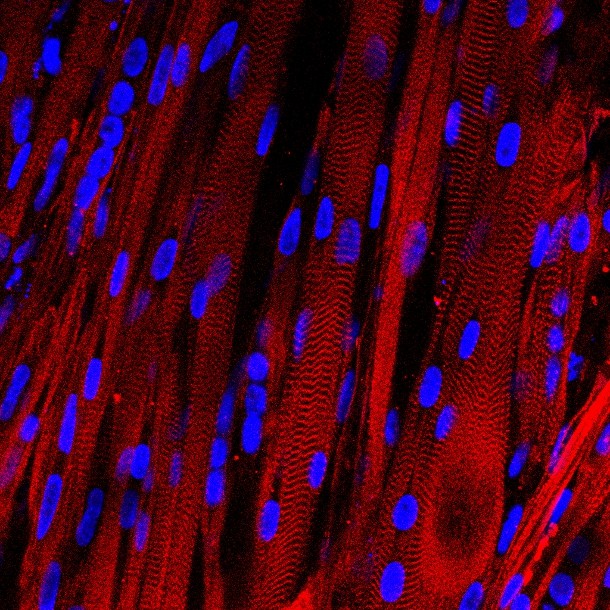Scientists discovered a medical breakthrough as the first lab-grown human muscle responded to external stimuli and contracts just like a natural one would.
The team of researchers in Duke University is led by Nenad Bursac, an associate professor of biomedical engineering in the university and Lauran Madden, a post-doctoral researcher.
Bursac told CNET that the lab-grown human muscle can "serve as a test bed" for clinical trials of drugs "without jeopardizing a patient's health." It will also be used to study the "biochemical signals" of some rare diseases.
The scientists used "myogenic precursors," which are cells close in becoming a muscle tissue. Bursac and Madden expanded the cells over 1000-fold and was then put into a 3D scaffolding to grow into muscle fibres with the help of a nourishing gel.
Madden ran a series of tests to determine how the lab-grown human muscle responded similarly to a native tissue. The scientist discovered that the human muscle contracted when an electrical stimuli was given. The response was a first for a lab-grown human muscle.
The scientist duo then tested the muscle to see if it reacts to drugs. Bursac and Madden gave the muscle statins, which is used to control cholesterol levels, and Clenbuterol, which is an off-label performance enhancer.
According to Pratt.duke.edu, the university's website, the human-engineered muscle responded by accumulating fat when there was a high concentration of statins. Clenbuterol, on the other hand, only showed a slight effect for increased contraction, a result which is also documented in humans.
Bursac said that a muscle may be grown from a patient to be used as "test samples" in order to determine which drug will be most beneficial for each individual.
The associate professor is already collaborating with pediatrics associate professor Dwight Koeberl from Duke Medicine to study the effects of drugs in both live patients and muscles grown in the lab.



























